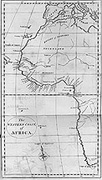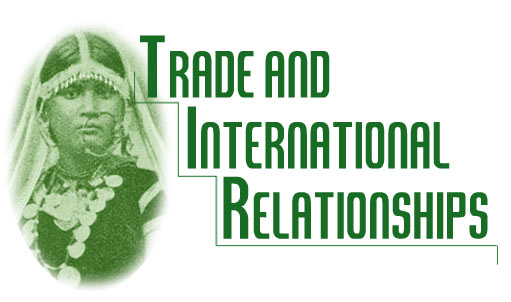
The essay by this group probes
the interactions between the various Caribbean islands during the Age of Emancipation, and also those between the Caribbean
and the rest of the world. Although the importance of the West Indies
as a source of European wealth declined in relative terms during this
period, sugar, coffee, and other goods-exported to Europe and to North
America-continued to increase in overall value. The Caribbean continued
to be a target of European investment. And Europeans continued to bring
new laborers to the plantation colonies. Some were enslaved people,
illegally imported from Africa after the various international treaties
and proclamations banning the international trade finally took full
effect in the 1820s. Others were indentured servants-the British planters,
in particular, convinced themselves that they could only work with coerced
laborers. They pushed the imperial government to import tens of thousands
of South Asians, especially to present-day Guyana and Trinidad, where
they became a major component of sugar plantation work forces. Chinese
laborers came to Cuba, while some indentured Africans came to British
colonies as well. The Caribbean, therefore, continued to play a major
role in the interactions of the wider world, even beyond the broad Atlantic.
islands during the Age of Emancipation, and also those between the Caribbean
and the rest of the world. Although the importance of the West Indies
as a source of European wealth declined in relative terms during this
period, sugar, coffee, and other goods-exported to Europe and to North
America-continued to increase in overall value. The Caribbean continued
to be a target of European investment. And Europeans continued to bring
new laborers to the plantation colonies. Some were enslaved people,
illegally imported from Africa after the various international treaties
and proclamations banning the international trade finally took full
effect in the 1820s. Others were indentured servants-the British planters,
in particular, convinced themselves that they could only work with coerced
laborers. They pushed the imperial government to import tens of thousands
of South Asians, especially to present-day Guyana and Trinidad, where
they became a major component of sugar plantation work forces. Chinese
laborers came to Cuba, while some indentured Africans came to British
colonies as well. The Caribbean, therefore, continued to play a major
role in the interactions of the wider world, even beyond the broad Atlantic.
|
